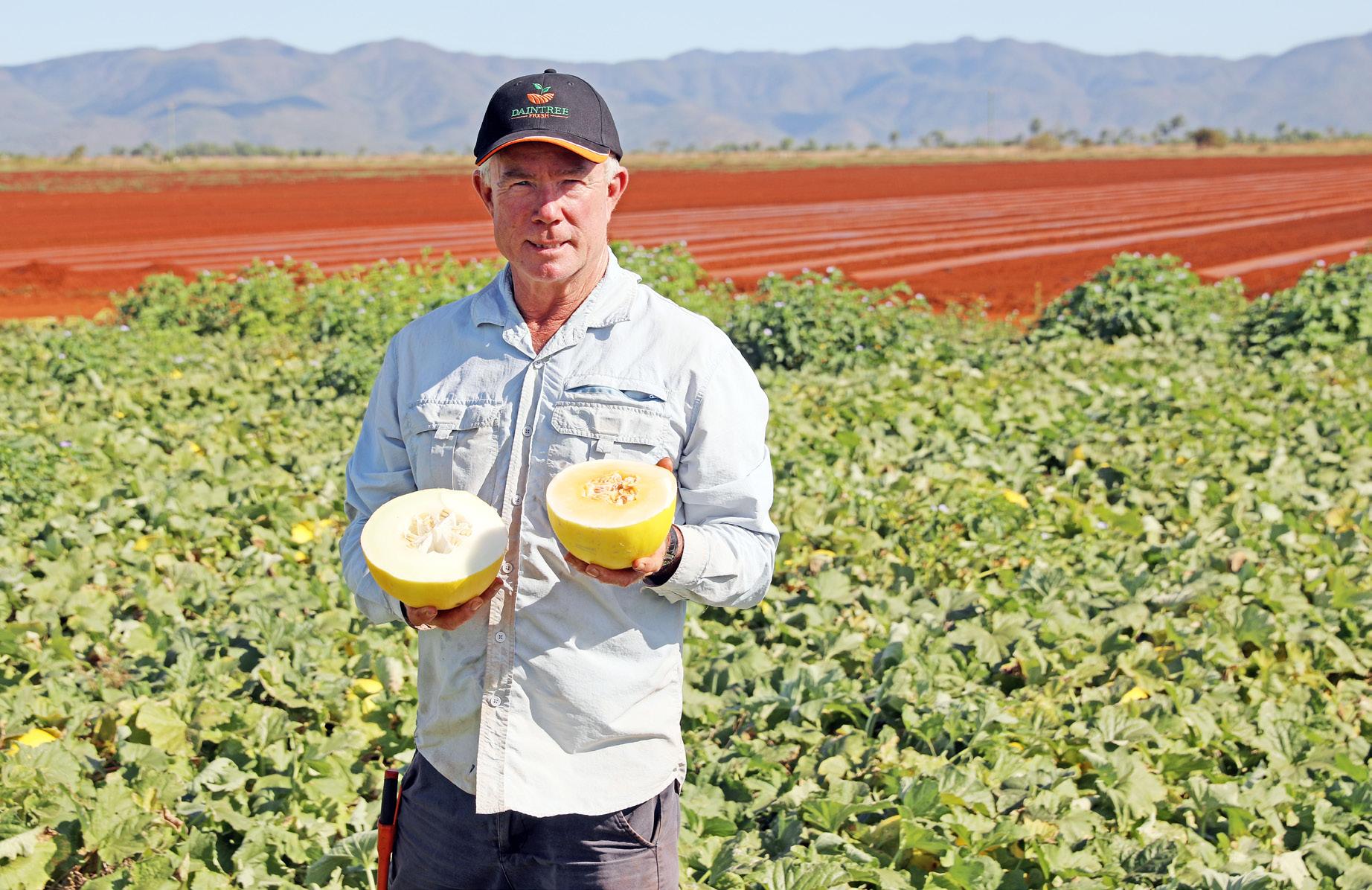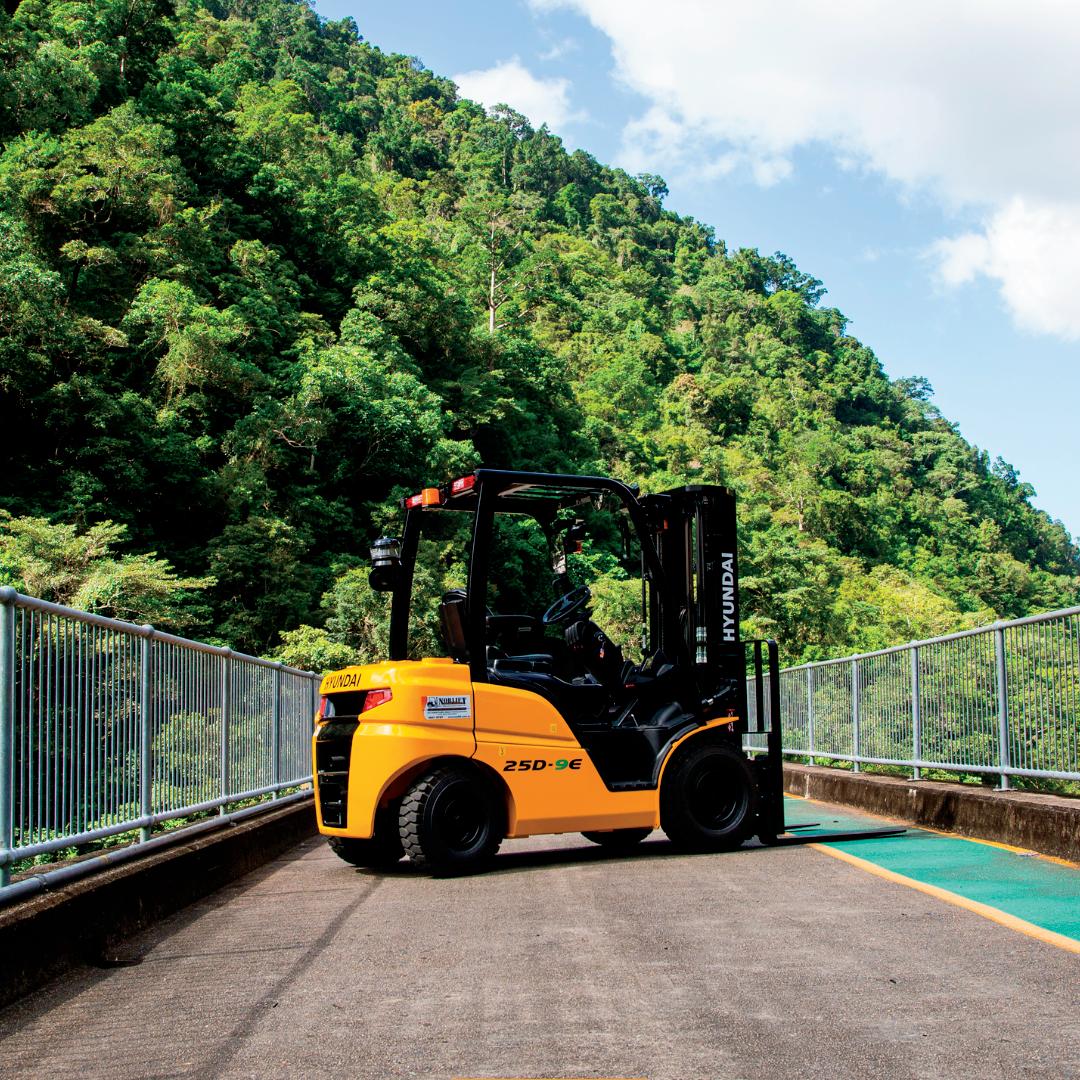
3 minute read
Lakeland melons heading to Japan after export trial
By SARAH MARTIN
THE first commercial shipment of Emperor’s Pearl melons from Daintree Fresh farm will hit shelves in Japan this year, as the Lakeland-based grower expands an export trial that started three years ago.
Boosted by funding from the state government, Daintree Fresh director Shaun Jackson created the new white-fleshed melon specifically for export.
“We were told they use rockmelons and honeydews and orange candy melons, so my answer for the Japanese market is a sweet, tasty fruit that gets there in good shape and remains in good shape for 20 days,” Mr Jackson told Cape York Weekly
“We set up trials three years ago and got a really good response from the Japanese market, so this year we have set up a program to increase to a fairly large commercial quantity.”
Mr Jackson, whose background is in seed and plant genetics, said the challenge was to grow a melon that maintained its quality over the long trip to stores overseas, and also finding new and improved ways to handle the fruit to help that process.
“We have been doing a whole lot of treatments on the fruit already, and some more will be coming into play in the next few months on our first harvests,” he said.
“We will be trialling a heap of different things and by the time these fruit get (to Japan) we will have the answers we need.”
Mr Jackon said Daintree Fresh focused on sustainable, natural methods of growing, pest management and fruit handling and preservation.
“Our aim is to look at the cultural practices the farm uses to pro- duce fruit with a longer shelf life,” he said.
“We are looking at how we grow, the nutrients we use, the post-harvest treatments.
“We use probiotics on the soil, bugs to control our insects, lots of organic carbons in the ground and we feed them with good bacteria out of capsicums, chilli, garlic and so on.
“This grant will helps us drill down on which of the many differ-
Sea Swift pulls out of service
SEA Swift has pulled the pin on its mothershipping operations ahead of the upcoming prawn season in the Gulf.
“Sea Swift has been an industry participant in mothershipping since 1987, however with Queensland’s prawn fishing industry facing multiple industry challenges over the past few years, Sea Swift has confirmed the sector is not currently commercially viable to service,” said CEO Dwayne Freeman.
He said that a major customer had modified its operating model to introduce its own vessel and, as a consequence, had no further need for Sea Swift’s services.
“This change has had a significant impact on the overall commercial viability of our mothershipping service,” he said.
ent applications and trials will ensure a good shelf life for the shipping to Japan.”

The farm’s commitment to natural processes had won over buyers in Japan, Mr Jackson said.
“It’s 50 per cent of the reason we’re getting business in Japan.
“It’s as much about the quality of the melons as the story of our farm, what we’re working towards and how we try to do things naturally and improve our soil.”
“We are continuing to work with the industry to identify any alternative options for servicing the upcoming prawn season.
“Like most businesses, our costs have also escalated and supply chain delays have added operating constraints.”
Mr Freeman said that he had informed mothershipping customers and staff of the decision, with a reassurance to staff around job security.
“I have assured all of our employees that there will be no forced job losses,” he said.
By MATT NICHOLLS
THE ancestral remains of two females from the Western Cape will be returned to Traditional Owners of the Weipa Peninsula after they were discovered in a Victorian museum.
The remains were collected by renowned anthropologist Donald Thomson in the 1930s.
Their discovery in the Museum of Victoria was made by Napranum resident Dr Fiona Wirrer-George Oochunyung as she was completing her pHd. She reached out to the museum and the remains were then put in the care of the Victorian Aboriginal Heritage Council.
“It’s great that they are coming home and we get to lay these human remains back on Country,” she said.
“It’s significant for obvious reasons and there will be an appropriate ceremony held by the ancestors in due course.”
It’s expected the remains will return to the Weipa region in September.
Dr Wirrer-George Oochunyung said it was likely that more ancestral remains would also be returned to the region as research intensifies.
The return has been funded by the state government through a $4.6 million program over a five-year period.


“The return of these remains means the Weipa Peninsula people can finally fulfil their cultural and spiritual obligations to care for and bury their dead,” said Resources Minister Scott Stewart.
“The Palaszczuk Government will work with them, the Queensland Museum Network and our counterparts in Victoria to enable this to happen as soon as possible.
“I hope it provides a small










